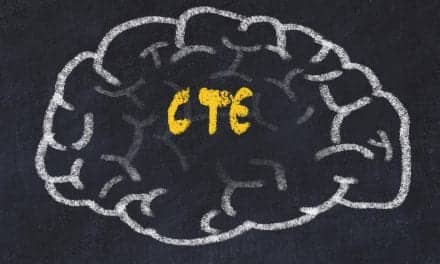A third of children and adolescents develop a mental health problem after a concussion, which could persist for several years post-injury, according to a new literature review from Murdoch Children’s Research Institute (MCRI), published in the British Journal of Sports Medicine.
Mental health should be evaluated as part of standard pediatric concussion assessment and management, they suggest, in a media release.
Poorly Understood
Despite many post-concussion and mental health symptoms overlapping, the relationship between delayed recovery and mental health had remained poorly understood until this literature review, according to MCRI researcher and Monash University PhD candidate Alice Gornall.
The review of 69 articles published between 1980 to June 2020, involved almost 90,000 children, aged 0-18 years, from nine countries including Australia, US, Canada and New Zealand, who had a concussion. Falls (42.3%) and sporting injuries (29.5%) were the most common cause of injury, followed by car accidents (15.5%).
It found up to 36.7% experienced significantly high levels of internalizing problems such as withdrawing, anxiety, depression and post-traumatic stress and 20% externalizing problems such as aggression, attention problems and hyperactivity after concussion compared with healthy children or children who sustained other injuries such as an arm fracture.
Pre-existing mental health problems were a strong predictor of post-concussion mental health issues. The review stated 29% of children with a pre-injury mental health diagnoses received a new mental health diagnosis post-concussion. Up to 26% without prior mental health problems went onto develop symptoms.
While significant improvements in mental health emerged between 3 and 6 months post-injury, a minority of children experienced persisting symptoms for several years afterward, Gornall adds in the release.
A Growing Public Health Concern
Concussion was a growing public health concern with a third of children experiencing a head injury before 13 years of age, Gornall notes.
“Despite the high incidence of concussion among children and adolescents, identifying those at risk of ongoing difficulties after concussion remains a prominent challenge for clinicians.
“On top of this, children take twice as long to recover from concussion than adults, with one in four children experiencing symptoms beyond one-month post-injury.”
— Alice Gornall
Trialing an Intervention
MCRI researchers are also trialing an intervention, Concussion Essentials, to prevent children suffering long term post-concussion symptoms.
The eight-session intervention combines physiotherapy and psychology treatments that target presenting symptoms with education around common concerns such as headache, fatigue and return to exercise, school and sports. Early data shows that the intervention is effective in accelerating recovery, the release continues.
Assessment, prevention and intervention of mental health difficulties after concussion should be integrated into standard concussion management, MCRI Professor Vicki Anderson notes in the release.
“Mental health is central to concussion recovery. Concussion may both precipitate and exacerbate mental health difficulties, impacting delayed recovery and psychosocial outcomes.
“Incorporating mental health risk into post-injury management represents an opportunity to engage children and adolescents with mental health services to either prevent unnecessary problems emerging or to treat already existing issues.”
— Vicki Anderson
[Source(s): Murdoch Childrens Research Institute, Science Daily]
Related Content:
How a Spit Test Could Diagnose Concussion
How Does Gender Factor Into Concussion Recovery?
On the Road Again So Soon After a Concussion?





